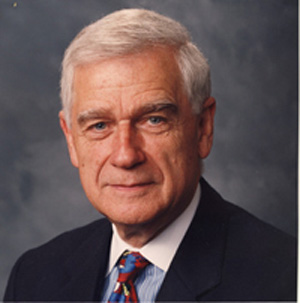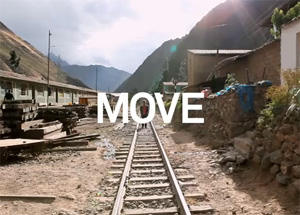jim wallis
We Are All Occupiers Now: The Mainstreaming of OWS; 10 Cities With The Lowest Poverty Rates: U.S. Census; Senators Push For Syria's Assad To Be Charged With Crimes Against Humanity; Surprise! The Rich Are Still Getting Richer; Paul Ryan To Slam Obama For 'Politics Of Division'; Does Pope Benedict Support Occupy Wall Street?; Clergy Petition Village Voice To Drop Ads Linked To Sex Trafficking.
When kids are sold for sex - there is no excuse.
That is why Jim Wallis signed onto a full page ad in the New York Times calling for Village Voice Media to shut down the "Adult Services" section of their Backpage.com website.
Why Homelessness Is Becoming An Occupy Wall Street Issue; U.S. Pulls Out Ambassador From Syria: Diplomats; Hispanic Alabama Schoolchildren Face Bullying In The Wake Of Anti-Immigrant Law; Vatican Calls For Economic Equality, Sweeping Reform Of Global Financial System; We Pay More To Drive Than We Spend On Taxes; New Obama Foreclosure Plan Helps Banks At Taxpayers' Expense
As you are reading this, the Congressional Joint Select Committee on Deficit Reduction (a.k.a. The Super Committee) is making choices about who and what our nation will protect.
Will we protect the wealthiest 2 percent by preserving $690 billion in Bush era tax cuts?
Or will we protect children by preserving $650 billion in special education, student aid, and assistance to low-income schools?
Will we protect corporations by preserving $97.5 billion in subsidies for big business or will we protect families by preserving $98 billion in Head Start and child care programs?
We have 32 days left to remind Congress that, "Oppressing the poor in order to enrich oneself, and giving to the rich, will lead only to loss" (Proverbs 22:16).
You have awakened the sleeping giant, too long dormant, but ever present, deep in the American democratic spirit. You have given voice and space to the unspoken feelings of countless others about something that has gone terribly wrong in our society. And you have sparked a flame from the embers of both frustration and hope that have been building, steadily, in the hearts of so many of us for quite some time.
Throughout history, often it has been left to the youth of a society to do that, and you boldly have stepped into the role of the emerging generation, which sometimes means saying and doing what others only think. You have articulated, loudly and clearly, the internal monologue of a nation.
SMILEY: I'm still going to finish my point. You're right to go after Stanley O'Neal. I know you didn't mean to do this. I don't want to believe you meant to do this, but Stanley O'Neal, there are four or five black CEOs in this country. You choose a guy at Merrill Lynch to make him the poster guy for all the folks on Wall Street.
O'REILLY: Oh Tavis knock it off with the black business, will you? Oh stop.
Last week, Sojourners CEO, the Rev. Jim Wallis, visited with #OccupyWallStreet demonstrators in New York City. "As I listen to them, I recognize what I felt as a young student-activist in the late '60s and early '70s," Wallis said. "I just feel from them what I felt a long time ago, that we're part of something much bigger than us, much larger than us...The visceral feeling [here] is, 'This could really change things.'"
The new movement called Occupy Wall Street now has spread across the country, from the very seats of our political and financial power and our largest cities, to suburbs and small towns. In some communities small groups of a few dozen have formed and in some cities thousands have gathered.
In each instance, no matter the size, people's frustrations, hurt and feelings of being betrayed by our nation's politicians and economic leaders are clear and they want to be heard.
We will likely see images and hear things that will offend us and some that will inspire.
We'll hear demands that we agree with and some that we don't.
And that's OK.
Visit msnbc.com for breaking news, world news, and news about the economy
Where is the compassion in our economy and our politics? It says much of the economic system that Sojourners even needs to campaign for a "moral budget." How do we, as Christians, challenge structures that allow billions of dollars to be wasted via tax loopholes while 1 in 6 Americans live in poverty?
Will we, as Sachs hopes,

In his column last week, Sojourners chief Jim Wallis talked about his frustration with the perennial misuse of the word "evangelical" by various media to describe folks and ideas that, in his view, and that of many of us who self-describe as evangelicals, don't bear any resemblance to what we understand that term to actually mean.
Below is a compilation of recent media reports where the word "evangelical" is invoked. When you read these, evangelical brothers and sisters, do you recognize yourself in how the word is used and defined? Or does it ring false to you and your understanding of what "evangelical" really and truly means?
Wall Street has been devastating Main Street for some time. And when the politicians -- most of them bought by Wall Street -- say nothing, it's called "responsible economics." But when somebody, anybody, complains about people suffering and that the political deck in official Washington has been stacked in favor of Wall Street, the accusation of class warfare quickly emerges. "Just who do these people think they are," they ask. The truth is that the people screaming about class warfare this week aren't really concerned about the warfare. They're just concerned that their class -- or the class that has bought and paid for their political careers -- continues to win the war.
So where is God in all of this? Is God into class warfare? No, of course not. God really does love us all, sinners and saints alike, rich and poor, mansion dwellers and ghetto dwellers. But the God of the Bible has a special concern for the poor and is openly suspicious of the rich. And if that is not clear in the Bible nothing is.
Not every Christian who shares my concern for the poor has the same view on policy or politics. But, here is a prejudice I am not going to back away from.
To be a follower of Christ is to be biased for the poor.
In life, we all have our biases. Some of them are natural tendencies or inclinations and others are habituated. Our culture tells us to be biased -- in a deferential sense -- towards those who can pay us back or who can look out for us in return. Society tells us to get in with the strong and the powerful because they will give us strength and power in return.
Jesus teaches something very different.
More than 15 percent of the U.S. population now lives in poverty -- the highest rate in 18 years, according to a U.S. Census Bureau report released this morning.
Poverty has risen for the third consecutive year in a row, the new census figures show, with perhaps most distressing are the child poverty numbers, which rose from 20.7 percent in 2009 to 22 percent in 2010.
"The results aren't good," the Rev. Jim Wallis, president and CEO of Sojourners, the largest network of progressive Christians in the United States focused on the biblical call to social justice, said upon reviewing the census report today.
Rose Berger from Sojourners magazine spoke to the hundreds of us gathered in Lafayette Park just before we processed to the fence surrounding the White House. She mentioned the irony of building a monument to Dr. Martin Luther King, Jr. by the powerful political forces who disregarded or dismissed his message during his lifetime -- we only honor him after he is safely dead. How ironic also that the dedication of the monument was postponed by the most recent example of significant climate change. Will evidence of climate change begin to also signal political change?
Rose called on us to take up the banner of the Living Spirit of Dr. King within ourselves and allow it to inspire us as we risked arrest by calling on President Obama to take a clear stand to help protect our environment and begin to make a U-turn from the climate change path we are traveling as a nation and culture. We are part of a two-week vigil and civil disobedience action calling the president to deny permission for building the proposed Keystone XL Pipeline from the environmentally devastating tar sands/oil shale development in Alberta, Canada to refineries in Texas.
The evangelical world expands to a far-off horizon and the topographical valleys and peaks cover landscapes that are both long and wide. Many in the media seem to have little knowledge of how large of a space the evangelical map covers. So, with this said, I welcomed Ross Douthat's thoughts in Monday's New York Times. His column, "American Theocracy Revisited," places good markers on the fears that Rick Perry and Michelle Bachmann's presidential runs are nothing more than an attempt at theocracy.
In much of the coverage of these two campaigns, the evangelical world gets flatten, stereotyped, and portrayed as only coming from one narrow point. Whether or not you agree with this view, the fact remains that any group that includes Miroslav Wolf, Jim Wallis, RC Sproul, Rick Warren, Joyce Meyers, Philip Yancy, Chuck Missler, Rob Bell, Albert Mohler Jr, TD Jakes, Amy Grant, Tony Campolo, Lucy Swindoll, Debrah Joy Winans, and so many more hues and colors of evangelicalism should not be placed in one bag and shaken into one lumpy mess, while saying that any one of their diverse views politically are the one true color. I know many will view this list and say who should or should not belong, and then justify their choices. A coherent political agenda could not be drawn from such a list of people. But following Jesus and making Jesus known in the world is at the core of each of these people's identity. Many on the list may disagree as to the best way to provide for the widows and orphans, but all would agree that we must care for them.
 Mark O. Hatfield's political witness shaped a whole generation of students, teachers, pastors, and social activists in the evangelical community and beyond. The voice of Christians today who plead for social justice and peaceful alternatives to war would not have emerged with its strength and clarity in the 1970s without his leadership. His death underscores the vacuum of such spiritually rooted voices uncompromising in their commitments to peace and justice within the cacophony political rhetoric today.
Mark O. Hatfield's political witness shaped a whole generation of students, teachers, pastors, and social activists in the evangelical community and beyond. The voice of Christians today who plead for social justice and peaceful alternatives to war would not have emerged with its strength and clarity in the 1970s without his leadership. His death underscores the vacuum of such spiritually rooted voices uncompromising in their commitments to peace and justice within the cacophony political rhetoric today.
One of my life's greatest privileges and joys was to work as an assistant to Senator Mark O. Hatfield for nearly a decade, from 1968 to 1977. I saw first-hand what courageous leadership, combined with unswerving compassion and civility, looked like within the political life of that turbulent and formative era. Those experiences are shared in my book, Unexpected Destinations (Eerdmans).
 If you are a 12-year-old baseball player, it looks like a field of dreams. There are huge bleachers wrapped around home plate, and extending into left and right field. Behind home, there is a high official box where the game is announced, scores are kept, and reporters watch and write their stories. The field itself looks carefully tended with freshly cut green grass, and a flat-raked dirt infield without potholes, bumps, or ditches. And the beautiful grass of the outfield extends to actual fences, which each player hopes to reach as they gaze at the most perfect baseball diamond any of them have ever played on.
If you are a 12-year-old baseball player, it looks like a field of dreams. There are huge bleachers wrapped around home plate, and extending into left and right field. Behind home, there is a high official box where the game is announced, scores are kept, and reporters watch and write their stories. The field itself looks carefully tended with freshly cut green grass, and a flat-raked dirt infield without potholes, bumps, or ditches. And the beautiful grass of the outfield extends to actual fences, which each player hopes to reach as they gaze at the most perfect baseball diamond any of them have ever played on.


